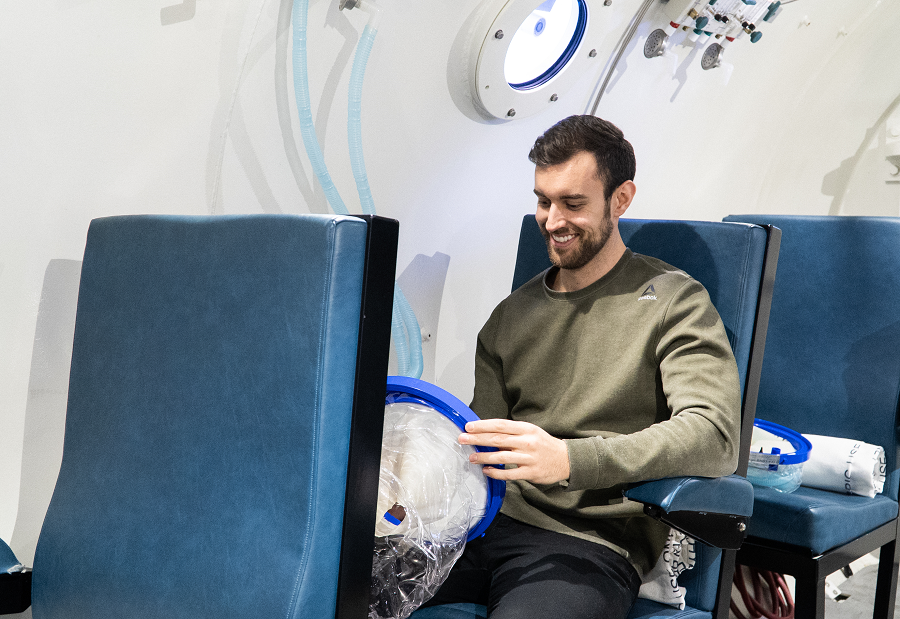
We hypothesized that oxidative stress from hyperbaric oxygen (HBO2, 2.8 ATA for 90 min daily) exerts a trophic effect on vasculogenic stem cells.
The efficacy of hyperbaric oxygen (HBO2) for healing refractory wounds in diabetic patients and those with radiation injuries has been shown in randomized trials, and its utilization is supported by independent evidence-based reviews (6, 10, 20, 32, 38). Mechanisms of action for HBO2 are not clear. The goal of this study was to examine the impact of HBO2 on vasculogenic stem cells in an in vivo animal model.
In humans, HBO2 has been shown to stimulate stem/progenitor cell (SPC) mobilization from the bone marrow and improve ex vivo clonal cell growth efficiency (60). In animal models, mobilized SPCs are recruited to wounds and accelerate healing (13, 15). While this response may arise because of the increased numbers of circulating SPCs, cell number alone does not necessarily reflect increased cell recruitment and vasculogenesis at peripheral sites (42). Therefore, we were interested in examining whether HBO2 may cause changes intrinsic to SPCs that alter cell growth characteristics. We hypothesized that HBO2 augments SPCs-mediated neovascularization by altering transcription factor expression and growth factor synthesis due to an oxidative stress response.
Read American Physiological Society | physiology.org
Read more about the study here
